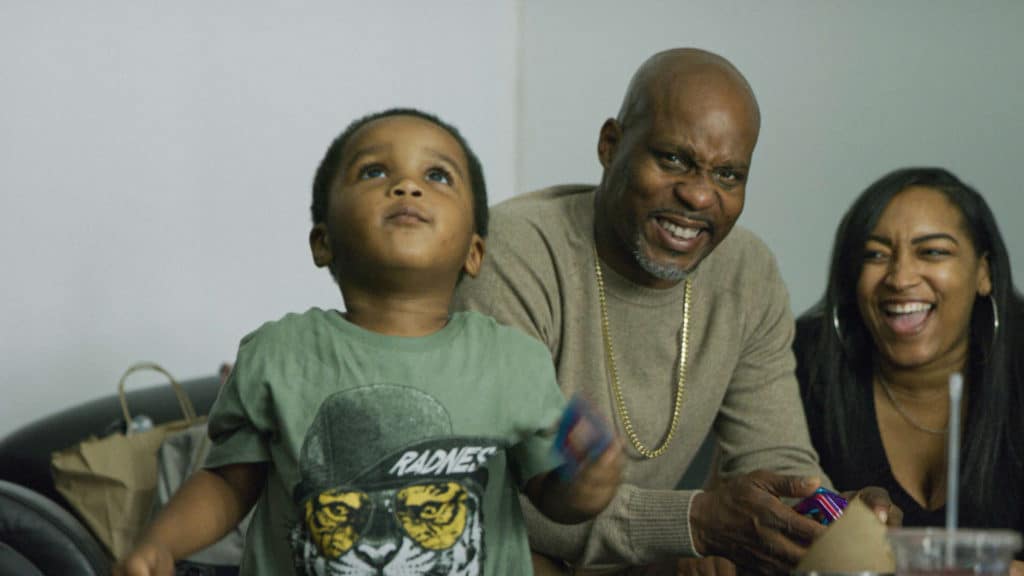
By Dan Murphy
On Nov. 25, HBO released DMX: “Don’t Try to Understand,” which is a powerful and honest film about the Yonkers born rap legend who sold 74 Million albums during his career, and is the only musician ever to have five albums debut as #1, during a time when albums were still the way to reach music lovers in the 1990’s and early 2000’s.
DMX, who died on April 9, 2021, agreed to the documentary, filmed by director Chris Frierson, that starts will his release from prison in January 2019 after serving one year for tax evasion. The film then takes you on a one year journey through DMX’s life, his comeback, relapse, and attempts to reconcile with his family.
Frierson’s documentary flashes back to DMX’s history, as a young Earl Simmons growing up in the Yonkers housing projects, and suffereing abuse from his mother that resulted in being sent to Andrus Children’s home in Yonkers, and later as a teen ager, living on the streets of Yonkers.
DMX calls Yonkers, ‘Y.O.’ and its the place that he always returns to, whether it be after a concert tour, or jail, or rehab. The ups, downs, kids, ex-wives, life on the road touring, making a comeback, having it all as you are about the reach the peak of fame, and then lose it all in a fall back into addiction, are a part of this film, and the wild ride of DMX.
It has you rooting for DMX during his comeback and tour, in which he plays to packed crowds, who want to hear the hits that take them back in time. And even in his late 40’s, there is still gas in the tank for DMX to give the people what they want and have them go away having had a good time.
The film also accurately shows how life on the road burns out almost every performer, including DMX, who after returning to the stage, shooting a music video, meeting with Death Row records, “disappears” for a few days.
The drug relapse shows how while DMX loves coming back to Yonkers, he also knows where to score drugs that he used and abused over twenty years. A few days after being unavailable to anyone, he goes into rehab in Massachusetts.
DMX had many friends in Yonkers, who said “He is not a criminal he’s an addict,” and “He’s fighting demons just like the rest of us.” Prayers for DMX, who does believe in God and prays during his concerts, came from strangers and many of us watching.
Even though all of us knew how the story would end, we were rooting for DMX to straighten out his life, and fix his family troubles, and try to end up happy. Most of us can relate to his premonition that his life was short, but that also all of our lives may be short duing COVID.
If you are from Yonkers, the connections to Y.O. are all over. There’s One Family Deli-Grocery on Woodworth Avenue where DMX likes to hang out during the day. And a return to the Municipal Housing projects on School Street where he grew up to hang out and play some cards and dice one night, to the Dow VFW Post, where most of the African-American members and veterans knew DMX. And his return to Andrus, where he has fond memories, “I never had three meals a day until I was here,” and where he told the young residents to “make the most out of your time here.” And Maxwell’s Pub, in Elmford, was his place to shoot some pool and have a beer.
His love for the people of Yonkers is clear, and so is his enjoyment of speaking with his fans in Yonkers. That difference is in stark contrast to being on the road, where “everyone wants something,” like a picture or autograph or time, that DMX had no patience for. Yonkers resident Uncle Buckeye wanted DMX to “be careful and not throw it all away.”
There are positive parts of the film and the late journey of DMX. He was able to fix his broken relationship with his oldest son, Xavier. As they reunite after several years, DMX tells him “I’m proud of the many you have become. And the time spent with his youngest son Exodus, and wife Desiree Lindstrom are special, and normal for any family man.
How this man achieved music stardom, (he had two platinum albums at the same time), while fighting the demons in his life is amazing. And he never stopped fighting and trying to do right by his family. One Yonkers resident said, “He is human, just like all of us. That’s why we love him. Nobody’s perfect.”
Some call it a tragedy that he died at age 50, while others say his life was a miracle, based on how he broke out of the abuse to become one of the greatest.
I wanted peace for DMX by the end of the film, and the final scene, where he sings to Glady’s Knight’s “The Way We Were,” was a perfect ending. Some reviews said that the film was difficult to watch. I loved it and learned a lot about him. And the Y.O. is proud of their son Earl Simmons, DMX, and the heights he reached.





